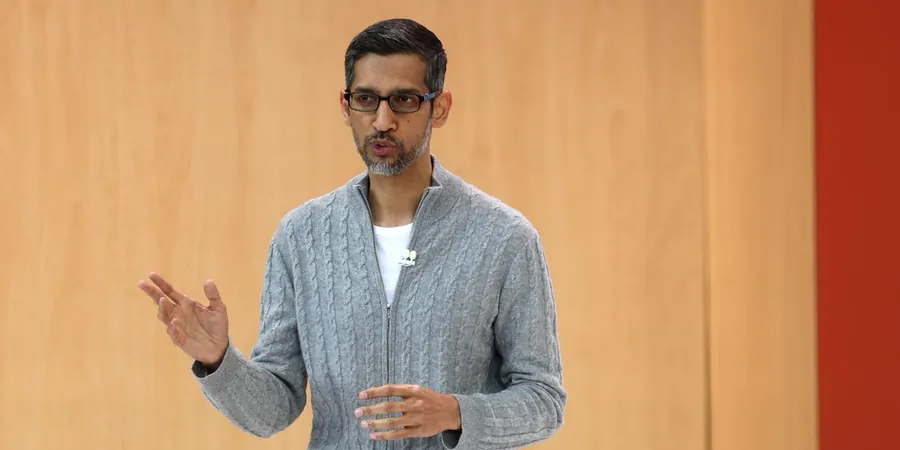
Could a New AI Strategy Lead Us Straight to Superintelligence? Insights from Google's Top AI Leader
2024-12-31
Author: Yu
Introduction
In a recent revelation, Logan Kilpatrick, a prominent figure at Google’s AI Studio, has sparked discussions about the future of artificial superintelligence (ASI). He argues that a direct approach to achieving ASI may be more viable than previously thought, especially as advancements in scaling test-time compute continue to show promise.
Shift in Perspective
Kilpatrick shared his insights on social media platform X, asserting that abandoning a step-by-step trajectory in favor of a straight shot towards ASI is becoming increasingly credible. This marks a significant shift in perspective, shifting the focus from gradual progress to an urgent drive for a monumental leap in AI capabilities.
Indicators of Progress
He highlighted that the ongoing enhancements in test-time compute - where AI systems are required to tackle tasks in real time - serve as a strong indicator that attaining ASI could be on the horizon. Until now, the predominant discussions in the AI realm have orbited around the timeline for achieving artificial general intelligence (AGI), where machines can perform human-level tasks across diverse fields. However, Kilpatrick's stance suggests a paradigm shift: as we achieve AGI, the transition to ASI may mirror a structured product release rather than a singular breakthrough event.
Innovative Methods and AI Models
The AI community has been exploring innovative methods to elevate models beyond basic learning, focusing on reasoning abilities more akin to human thought processes. Google and OpenAI have introduced advanced AI models recently, showcasing enhanced reasoning capabilities that could shape the future of AI development.
Sutskever's Insights
Kilpatrick also referred to the insights of Ilya Sutskever, cofounder of OpenAI, who has previously expressed concerns regarding the diminishing availability of data for training AI systems. After founding his startup, Safe Superintelligence, Sutskever committed to a concentrated effort in pursuing ASI with a unified vision. Initially skeptical of his approach, Kilpatrick now posits that it could be a potential game-changer in the quest for superintelligence.
Conclusion
His opinion is noteworthy given his impressive background; having previously spearheaded developer relations at OpenAI, Kilpatrick’s move to Google has been interpreted as a strategic win for the tech giant in the competitive AI landscape. While he acknowledges the merits of iterative development, Kilpatrick’s comments imply that a swift, direct method may surprisingly yield results much sooner than anticipated.
Future Possibilities
As the world eagerly awaits developments in AI, Kilpatrick’s insights hint at a thrilling era of possibilities. Will we be witnessing the dawn of superintelligence sooner than we expect? Only time will tell, but the conversation has certainly taken an intriguing turn. Stay tuned for updates as this story unfolds!


 Brasil (PT)
Brasil (PT)
 Canada (EN)
Canada (EN)
 Chile (ES)
Chile (ES)
 Česko (CS)
Česko (CS)
 대한민국 (KO)
대한민국 (KO)
 España (ES)
España (ES)
 France (FR)
France (FR)
 Hong Kong (EN)
Hong Kong (EN)
 Italia (IT)
Italia (IT)
 日本 (JA)
日本 (JA)
 Magyarország (HU)
Magyarország (HU)
 Norge (NO)
Norge (NO)
 Polska (PL)
Polska (PL)
 Schweiz (DE)
Schweiz (DE)
 Singapore (EN)
Singapore (EN)
 Sverige (SV)
Sverige (SV)
 Suomi (FI)
Suomi (FI)
 Türkiye (TR)
Türkiye (TR)